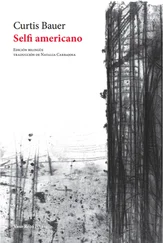Curtis Sittenfeld - American Wife
Здесь есть возможность читать онлайн «Curtis Sittenfeld - American Wife» весь текст электронной книги совершенно бесплатно (целиком полную версию без сокращений). В некоторых случаях можно слушать аудио, скачать через торрент в формате fb2 и присутствует краткое содержание. Жанр: Старинная литература, на английском языке. Описание произведения, (предисловие) а так же отзывы посетителей доступны на портале библиотеки ЛибКат.
- Название:American Wife
- Автор:
- Жанр:
- Год:неизвестен
- ISBN:нет данных
- Рейтинг книги:4 / 5. Голосов: 1
-
Избранное:Добавить в избранное
- Отзывы:
-
Ваша оценка:
- 80
- 1
- 2
- 3
- 4
- 5
American Wife: краткое содержание, описание и аннотация
Предлагаем к чтению аннотацию, описание, краткое содержание или предисловие (зависит от того, что написал сам автор книги «American Wife»). Если вы не нашли необходимую информацию о книге — напишите в комментариях, мы постараемся отыскать её.
American Wife — читать онлайн бесплатно полную книгу (весь текст) целиком
Ниже представлен текст книги, разбитый по страницам. Система сохранения места последней прочитанной страницы, позволяет с удобством читать онлайн бесплатно книгу «American Wife», без необходимости каждый раз заново искать на чём Вы остановились. Поставьте закладку, и сможете в любой момент перейти на страницу, на которой закончили чтение.
Интервал:
Закладка:
I did not contradict myself; I live a life that contains contradictions. Don’t you?
Pete Imhof will know, if Dena hasn’t already told him. My mother will know, my poor mother, if, in her present state of senility, she is cognizant enough to absorb the news. The silver lining, such as it is, is that other women who have had abortions might feel—what?—less alone? Less guilty? But that’s to assume they feel alone and guilty now, which I generally doubt. Personally, I’ve never regretted having an abortion; I’ve regretted the circumstances that led to its necessity, but I maintain that it
was
a necessity, that it was, however cowardly Dr. Wycomb thinks I am to lean on the phrase, a medical procedure. Would I feel more uncomfortable if it had occurred in the twelfth week or the sixteenth instead of what was likely the fifth or sixth? Yes, I would. But the debate about when life begins seems to me misguided; I made a private, personal decision related to my own health.
When it becomes public, it’s difficult to know how adversely the news will affect Charlie. His administration has proved resilient at weathering scandals, but he is a lame duck at this point, obstructed by Democrats in the majority in both the House and Senate—the ’06 elections were when Hank’s supposed political sorcery faltered at last—and Charlie’s focus has returned after all these years to his legacy, the topic that so used to rankle me. I suppose the preoccupation is more justified now, but I still silently resist it. Viewing a legacy as a few grand acts seems reductive. Isn’t your legacy not the one or two exceptional gestures of your life but the way you conducted yourself every day, year after year? Either way, Charlie personally will forgive me, I feel confident. To lobby him to withdraw Ingrid Sanchez’s nomination would be a betrayal in his eyes; to be outed as the first lady who had an abortion would merely make me a victim. In order to placate his conservative Christian base, it’s likely he’ll want me to grant an interview in which I condemn my behavior, to say,
I am a sinner,
but when I decline, he won’t push me. This is our implicit agreement, that we can suggest or recommend but that we never force, never make ultimatums; it’s why we don’t resent each other.
And perhaps in some secluded part of my conscience, I even welcome the disclosure, just as I welcome the scolding from Gladys Wycomb. The Lutherans I was raised among believed less in a vengeful God than a disciplining one: If we had faith in Jesus, we’d find eternal salvation, but in the meantime, here on earth, we might encounter obstacles or tests intended to help us grow. Many years have passed since I’ve had faith in Jesus, but it is undeniable that the framework of our upbringing stays with us, and it’s entirely plausible to me I’m now being “disciplined” for past transgressions: not for Andrew (in that case, the mistake and the punishment were one and the same) but for the life I’ve lived in spite of that terrible early error. It all could have unraveled for me, couldn’t it? But it didn’t, and I became lucky—I was allowed the felicities of marriage and motherhood, the comforts of wealth, and ultimately, the exorbitant privileges available at the highest level of politics. Since Charlie entered public office, I have felt an amplified version of what I used to feel at the Maronee Country Club, the fear that we were like the Californians who live in beautiful houses overhanging cliffs.
In my expectation that good fortune will lead inextricably to its reversal, I should note that I don’t think I’m less deserving of happiness than anyone else; it is that in an unequal world, nobody deserves the privileges I enjoy. I’ve thought often since Charlie became governor that it isn’t a surprise so many famous people seem mentally unstable. As their celebrity grows and they’re increasingly deferred to and accommodated, they can believe one of two things: either that they’re deserving, in which case they will become unreasonable and insufferable; or that they’re not deserving, in which case they will be wracked with doubt, plagued by a sense of themselves as imposters. I suppose this is why I’ve tried mightily to lead a “regular” life—why I still make our bed, why I stay at Jadey and Arthur’s house instead of at a hotel when I’m traveling in Wisconsin without Charlie, why I read the newspaper instead of relying on briefings, why I shop myself, albeit with agents, at Hallmark, where I pick out birthday or anniversary cards (never ones featuring us) because how can you rely on an aide to know what kind of birthday card to get for your own friend or brother-in-law? If I can remain a normal person, I hope to share my normalcy with Charlie; I realize my attempts are inadequate, but they are better than nothing.
In Dr. Wycomb’s living room, I say, “It doesn’t seem as if either of us will be able to persuade the other to come around, does it?”
“All those women who’ll have to have back-alley abortions—you’ll be able to live with that?” She still is shaking.
“Dr. Wycomb, I know you feel passionately—”
“You have the power to change history, and you don’t care. Reproductive rights don’t strike your fancy? Well, how about gay marriage? I can think of at least one reason that ought to be close to your heart. How about the environment, how about civil liberties, how about this godforsaken war, or do the two of you plan to sit there with your blinders on until he’s out of office and his successor can clean up the mess?”
“You’ve made your point.” I stand; I have had enough. “I’m going to leave, Dr. Wycomb. I wish you well.” I can’t imagine touching her in goodbye, I can’t imagine she’d want it. I begin walking toward the foyer.
I’ve reached the threshold when Dr. Wycomb says, “Your grandmother would be so disappointed in you.” The part that stings most is that her voice in this moment is less angry than wonderingly sad.
I turn, and though I remind myself that Gladys Wycomb is no different from a journalist who writes an article about me, that her saying something doesn’t make it true, I can’t help responding. “I don’t agree,” I say.
“Emilie may not have been a political person, but she knew right from wrong.”
“
You
disappointed her,” I reply, and I can hear in my own voice an unattractive note of ferocity. “She told me herself that you tried to make her choose between you and us, and she chose us. That’s all I need to know—she chose us.”
“You and your parents practically held her prisoner in that dumpy little house. And the way you all tried to whitewash her sexuality, I shouldn’t be surprised by what kind of person you’ve become.”
Is this accurate? Either way, is it what my grandmother believed, what she told Dr. Wycomb, or is it what Dr. Wycomb decided on her own?
“I loved my grandmother, and my grandmother loved me.” Before continuing into the foyer and out the door of the apartment, I say, “You can’t poison that.”
ONE SATURDAY EVENING
in October 1994, by the time it was clear Charlie was likely to win the gubernatorial election in Wisconsin, our old friend Howard from Madison drove to Maronee for an overnight visit with his wife, Petal. (Howard and Petal had gotten back together, and married, over a decade after I’d met her on the Mendota Terrace as a pretty young college graduate.) This was an exhausting time for our family—on many nights, Ella slept at Arthur and Jadey’s while Charlie and I and Hank and other members of the campaign staff wound our way among the tiny towns up in the northern part of the state, Cornucopia and Moose Junction and Manitowish; if we stayed in a Holiday Inn as opposed to a no-name motel, it seemed like a luxury. (Early in the campaign, Charlie had started traveling with his own down pillow, which I folded in half each morning and set in my canvas bag.) Given our schedule, the opportunity to visit with friends was rare, and I felt that it would be restorative for all of us and especially for Charlie. I’d noticed that the more days in a row he spent campaigning, the more impatient and cranky he became—that morning at a power plant in New Richmond when a single mother of three asked him why she should believe he knew anything about working families, he’d snapped, “If you don’t think I do, then maybe you shouldn’t vote for me”—but even just a short break could do him a world of good. That Saturday afternoon, we’d flown back to Milwaukee from Eau Claire on an eight-seat prop plane. Though initially I’d had grand plans of making a real meal, all I had the energy for was spaghetti, but the evening turned out to be great fun, Howard and Petal and Charlie and Ella and I sitting in the kitchen instead of the dining room, talking and laughing.
Читать дальшеИнтервал:
Закладка:
Похожие книги на «American Wife»
Представляем Вашему вниманию похожие книги на «American Wife» списком для выбора. Мы отобрали схожую по названию и смыслу литературу в надежде предоставить читателям больше вариантов отыскать новые, интересные, ещё непрочитанные произведения.
Обсуждение, отзывы о книге «American Wife» и просто собственные мнения читателей. Оставьте ваши комментарии, напишите, что Вы думаете о произведении, его смысле или главных героях. Укажите что конкретно понравилось, а что нет, и почему Вы так считаете.












